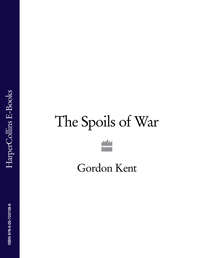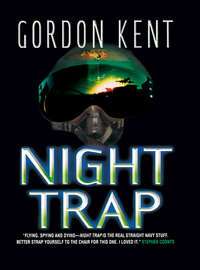
Полная версия
The Falconer’s Tale
Time to go.
The crannog interested him, even while he stood shivering on it. Between casts and retrieves, he tried to imagine how it had come here, how much effort it would have taken people (how many people—a family? Two families?) to build—and why. For the fishing? And when?
He left his boots off for the return trip. With his socks worn over the waders, he had reasonably sure footing and made his way without incident. He was losing too much heat from his head. He drank the rest of his thermos of tea and ate a sandwich made of the leftovers from his attempt to find presents for Hackbutt and pulled the plastic bags over his head, and then his cotton shirt, now wrung out, and then another bag. Better than nothing.
The walk back out was easier than he had expected. Perhaps because it was downhill, or the psychological effect of having his car in sight from the moment he climbed out of the caldera, but the climb down served only to keep the worst of the chill away. The Land Rover’s heater was a magnificent, efficient machine and he was warm before he negotiated the mountain pass on the road back to Salen. The heater almost made up for the width of the monster, but as he negotiated lay-bys and oncoming headlights, he cursed the car again. Darkness was falling. He drove carefully, passed the Aros estuary with regret, and went straight to the hotel.
In the morning, he stopped at the bookstore on his way to his car. Donald was already at work and greeted him enthusiastically. “Did you get anything?” he called, as soon as Piat was through the door.
Piat recounted his adventures. He had recorded his catch on the tickets and produced them.
Donald laughed. “You climbed on the crannog, then?”
“Who built it?” asked Piat.
Donald shrugged. “We have some books—people always want to know. There are four of them on the island, more on the mainland of course.” He pulled out a battered Ordnance Survey map and flipped it fully open. “One here, on the Glen Lochs—that’s quite a walk. Some fishing if you like wee browns. One here, on Loch Frisa. The one you climbed, of course, down south. And one just above the town, here. Quite a story to go with the local one.”
Piat had watched Donald’s thick fingers moving over the map, thinking automatically no cover, no cover, visible from the road. “Hmmm?” he said. “A story?” Piat was a good listener.
“A local man, a farmer, had the notion that he could build a dam on the loch above the town and regulate the flow of water—perhaps he intended to build a mill. What he did in fact was to drain the loch. The crannog was revealed as the water ran out—and they found a boat, completely intact, all sorts of other objects.”
Piat made interested noises throughout. “Where are they?”
“Oh, as for that, you’d have to ask Jean or my daughter. Perhaps in the museum?”
Piat left with two books on crannogs, one an archaeological report from a dig on the mainland and one more general. He stopped at the museum, but it was closed.
He made the ferry line with seconds to spare, checked in at Lufthansa two hours early in Glasgow, and landed in Athens via London and Munich in time to eat a late dinner on the Plaka and fall into a hotel bed. He had nine thousand, four hundred and twelve dollars and some change, a new wardrobe, a new historical interest, and a return ticket to Glasgow. It’d been cheaper that way. What the hell, he thought as he lay in bed. Maybe someday I’ll go back.
The next day, he splurged and caught the high-speed ferry to Lesvos, saving twelve hours. He called Mrs Kinnessos from Piraeus and told her that yes, he would be taking the house for another six months, even at the summer price, and he was absurdly pleased when she offered him a discount for his constancy. By the time the ferry reached Mytilene, he had made himself the middleman on a deal for some Roman statuary from the Ukraine headed to the United States. His cut would be seven hundred euros.
Molyvos seemed ridiculously crowded after Mull. He sat in the chocolate shop half way up the town with his laptop open, drinking Helenika and thinking about sea trout and crannogs.
3
A week later, Clyde Partlow was sitting at a computer in an office that was, by CIA standards, big. Not as big as the director’s, but big. No private dining room, but a private john. Partlow was a somebody, so all the more reason that he read reports direct from the computer screen. Partlow sneered at the old fogeys who still insisted on hard copies and who had to telephone for help if their screen coughed up an error message. After his fashion, Partlow was with it.
His right hand was on a mouse so that he could scroll down easily. On the screen was something that called itself a “draft contact report,” typed into a template so that the form number was at the top and the headings were boxed. The ones that interested Partlow were the operation number and the “task number served.” Together, they interested him deeply.
He began to read. Almost at once, the slight frown of concentration that had puckered his smooth, sleek face deepened to a scowl of concern. Another paragraph, and the scowl began to take in anger, then anxiety, then despair. He scrolled down faster, clearly glossing text, whipping to the next page and then right to the end. He read the final paragraph and then sat back and pressed his forehead. He breathed deeply and rubbed his fingers and thumb back and forth across his forehead as if smoothing the wrinkles that the reading had created. He breathed out, the air expelled in little puffs, lips pushing out and in. He shook his head.
Partlow hadn’t got where he was by wasting energy on his feelings. He’d never been known to blow up at anybody and he’d never been known to weep with gratitude or joy or even grief. He gave congratulations well and he censured well, right up to and including firing people. They always left thinking that there was nothing personal about good old Clyde. So now, instead of doing what his adrenal gland and the atavistic, caveman part of his brain wanted to do, he sat back and read the entire four-page document with care.
When he was done, he called up his address book, picked a name, tapped it into his telephone and waited. When a voice at the other end said, “Defense Intelligence Agency, Petty Officer Clem speaking this-is-not-a-secure-line, sir, to whom may I direct your call, sir!”
“Captain Alan Craik, please.”
Mike Dukas was sitting late in his office because he was the Special Agent in Charge, Naval Criminal Investigative Service, Naples, and he and about half of his responsibilities were behind schedule. Down the hall, his assistant, Dick Triffler, was spending valuable time filling out paperwork for a three-year antiterrorism self-study that nobody would ever read; beyond him, two special agents were together in an office, trying to hammer out the charges against a sailor who had got drunk and beaten up a Turkish police cadet.
Dukas heard the ping of his secure telephone; he hit the button without taking his eyes off what he was reading. He was always reading now—reading or writing or going to meetings; the good days of getting out into the field were over. He sighed, looked up at the screen of the secure telephone, and read, “From: Defense Intelligence Agency, Captain Craik.”
He hit the talk button and said, “Al, that you?”
The answer came like static from deep space, Craik’s voice laid over it like an alien signal. “Mike?”
“Yeah. Al?”
“Hey, Mike.”
“Would you like to move to a conversation, or you want to stay with IDing each other?” He heard Craik laugh, and then they spent thirty seconds on how-are-you-how-are-thekids-how’s-your-wife. Their spat—if that was what it had been—in Reykjavik was forgotten. Then Craik said, “I just got off the phone with Clyde Partlow.”
“Better than getting on the phone with Clyde Partlow. Now what?”
A barely perceptible pause, but enough to sound a warning. “He wants Piat back.”
“Oh, shit. What the hell for?”
“Wouldn’t I like to know! Of course he didn’t say. He just asked if I knew where I could get hold of Piat again.”
“And you said, ‘Oh, sure, my pal Dukas carries him around in his back pocket.’ Right?”
“I said I’d see.”
“Al—” Dukas had been trying to read a report while they talked; now, he tossed the stapled papers halfway across his desk. “I’m not Piat’s personal manager.”
“Chill out, okay?”
“Once, as a favor, I found him for you. Twice is too much like a job.”
“I think he wants him again because something’s wrong.”
“Contact didn’t work.”
“Or it worked for a while and then it went bad. It’s been more than a week, after all.”
“Piat could be anywhere.”
“Yeah, but I’ll bet you know how to reach him.”
Dukas saw his number two, Dick Triffler, appear in his doorway, and he waved him in and pointed at a chair. “So maybe I know an address in cyberspace where sometimes he takes messages. So?” He mouthed “Al Craik” at Triffler, who raised his eyebrows.
Craik’s artificially tinny voice said, “Get a message to him.”
“What—‘Go see Clyde Partlow’? That wouldn’t even get him off a bar stool.”
“Persuade him.”
“Al, I know where you’re coming from, but why should I persuade Jerry Piat to do anything? The man’s a loner, a renegade, a goddam outsider! He doesn’t want to go see anybody! Piat’s opted out and he knows the price and he’s willing to pay it.”
“Will you try?”
“Al, I got an NCIS office to run!” He winked at Triffler. “Sitting right here is Dick Triffler, who would take my place if I took the time to persuade Jerry Piat. Do you want the US Navy to have to depend on Dick Triffler?”
“Say hello for me.”
“Al says hello.”
Triffler smiled. “Tell him I said hello.”
“Triffler says hello. We all cozy now? Okay. Listen, I’ll do this much: I’ll send Piat a message. If he’s willing to listen, I’ll try to talk to him. By phone. But I can’t devote my life to this, Al. Neither can you, for that matter. It isn’t as important as running the Naples office of NCIS. It isn’t as important as being the collections officer for DIA.”
“It’s important enough for Partlow to have messaged the head of NCIS to ask for special cooperation, attention Michael Dukas, NCIS Naples.”
Dukas flashed Triffler a look of disgust. “This was your idea?”
“This was Partlow’s idea. He asked me to call you before the message got to you so you wouldn’t take it the wrong way. Mike, I know it’s an imposition; I know you’re working your ass off; but so am I. I’m just the messenger here. Don’t take it out on me.”
Dukas sighed. “So Partlow wants me to bring Piat in. Even if I have to take time away from my job. And NCIS has already said that’s what I should do. Are you in it with me?”
“Not this time. I got no authorization, no orders.”
“You know, I thought I might actually take Saturday off this week and take my wife to Capri, which I’ve been promising to do for two years?”
Craik made sympathetic noises, and they tossed stories about overwork back and forth, and they parted friends. Dukas, when he had hung up, looked at Triffler with an expression of disgust. “I’ve been drafted,” he said. His hand was still on the secure telephone.
Triffler, an elegant African American who played Felix to Dukas’s Oscar, merely smiled. “Al got another wild hare running?”
Dukas grunted and held up a finger, as if to say Wait until I check something. He picked up the phone, and, shaking his head at Triffler’s pantomimed offer to leave, called his boss in Washington. After a few pleasantries, Dukas said, “I hear I’m being ordered to run an errand for the CIA.”
A brief silence, then his boss’s voice: “Not my doing.”
“Higher up the line? The DIA?”
After another hesitation, “Higher than that.”
When Dukas had put the phone down in its cradle, he turned to Triffler. “What’s the Pentagon’s interest in sending me to do the CIA’s work?” He cocked a cynical eye at Triffler. “You remember Clyde Partlow?” Dukas told him about the Iceland trip and the new request to find Piat. “Piat isn’t exactly my asshole buddy.”
“So you send him an email, and if he doesn’t answer, you’re off the hook.”
“Well—” Dukas hitched himself around toward his pile of paper. “Apparently I’m getting orders to bring Piat in. I may have to leave the office.”
“And put me in charge for a day? Lucky me!”
Dukas waved a hand at the pile of paper. “My son, one day all this will be yours.”
“What’s your wife going to say?”
Dukas groaned.
Piat’s Ukrainian deal went down without a hitch, and the seller paid up, just like that. He’d been home for ten days, and Mull seemed very far away. Now Piat sat on the precarious balcony of his favorite chocolate shop and drank his second Helenika of the day, closed his laptop with a snap, and contemplated the archaeological report he had bought on Mull about Scottish crannogs. He was bored and he had nothing better to do than read it. He’d glanced through it on the plane—very dry, almost no analysis at all—and now he turned to the color plates of the finds. Most of them were dull, and worse, unsaleable—who would buy a three-thousand-year-old bundle of ferns once used as bedding? But there were valuable items, as well: a single gold bead, a copper axe head, a remarkable slate pendant shaped with sides so well smoothed he could almost feel them under his hands.
Crannogs were late European Bronze Age. And the cold water preserved things very well indeed. Piat sipped coffee and ordered a third. He felt rich.
Lesvos was full of tourists. Piat had avoided them for a year by leaving the island during the height of the season—one of the reasons he’d headed off for Iceland, and devil take the consequences. Now Molyvos was crawling with them, and his chocolate shop perched on the edge of the town with a hundred-foot drop to the old Turkish gate below was filling up. Soon enough, Sergio would give him the eye and suggest that he move along and make room for more customers. Piat looked into the shop. There was a big, dark guy at the counter with a very pretty woman with a baby. Piat admired the woman’s backside for a moment, and then—
“Jesus,” Piat said, out loud. The man at the counter was Mike Dukas. Again.
Dukas led the woman out on to the balcony. The whole structure moved under their weight—it was sturdy, but it did protrude well out over the cliff. Dukas looked embarrassed.
“Jerry?” he said. His hand was out.
There wasn’t anywhere to run. Piat shook hands. “Mike.” He gave the woman a smile. She smiled back, and then looked up at Dukas as if exchanging a joke.
Dukas said, “This’s my wife, Leslie.” Leslie Dukas was twenty years younger than her husband, rather stunningly pretty next to such an ugly man despite the pack full of baby that she carried.
Piat indicated his table and waved through the window for Sergio.
Leslie stood for a moment, shaking hands with Piat. “You guys can just do the guy thing. We’ll go have a feed, won’t we, kiddo?” A tiny pudgy hand reached out of her baby pack and tweaked one of her nipples. She laughed. “Gotta go, guys.”
Piat was left with Dukas. Dukas ordered coffee and a big pastry. He made a joke to Sergio in decent Greek.
“Your wife’s lovely,” Piat said.
“Yeah,” said Dukas. And again, “Yeah.”
“That’s the small talk, then. What are you doing here?”
Dukas still looked embarrassed. He doesn’t want to be here, Piat thought.
“Partlow wants you back,” Dukas said. He shrugged.
“Dave’s already fucked it away?” asked Piat.
Dukas shrugged again, looking as Greek as a local, his arms spread wide on the bench back, his weight slumped a little. “Did you expect it?”
“Phff.” Piat’s noise was contemptuous. He had realized himself that he was still smarting under the speed with which he’d been tossed aside. “I don’t know what Clyde was thinking. The guy couldn’t handle a hooker.”
Dukas snorted. His eyes were on Piat’s book, but they flicked up and met Piat’s quickly. Piat was off thinking about Dave and Partlow. “So where do I meet Clyde? Is he hiding in a hotel in Mytilene?”
Dukas passed Piat a slip of paper. Piat disappeared it into his pack with a minimum of fuss. Dukas said, “Not as far as I know.”
“Still in Scotland?”
It was the look on Dukas’s face that finally warned Piat—a little look of interest, almost triumph, at “Scotland.” Dukas had been looking at the book—Dukas hadn’t said anything—
“You don’t know, do you?” Piat said.
Dukas hesitated and then shook his head. “Nope,” he said. And then he smiled and said, “But I bet it’s in Scotland.”
Piat leaned closer to Dukas. “I thought you were in on this.” He shoved the crannog book into his pack and glanced at the slip of paper—just a DC telephone number.
“Partlow doesn’t know where to find you.” Dukas rubbed his nose and his eyes met Piat’s. “I thought you might prefer it to stay that way.”
It wasn’t said as a threat, or at least it didn’t sound like a threat to Piat, and he had been threatened by experts. But it did speak volumes. Dukas was saying I could have fucked you and I didn’t, so you owe me.
“I do. I like it here.” Piat glanced out over the cliff to the brilliant blue sea and the black volcanic beach. It all flitted around his brain—Hackbutt and Irene and the birds and Dave and Partlow and the sea trout in the loch. On balance, it didn’t look very attractive from here. It looked like work. “How much?”
“I’m just the messenger.” Dukas was looking over the balcony. Piat realized that Dukas’s wife was directly below them on the street.
They both watched Leslie. Her laugh and the baby’s mewl of delight were easy to hear. Then Dukas said, “Listen, Jerry—Al Craik thinks it’s important. You know—”
“I know you two go way back. Everyone in the business knows.”
“Okay. That’s all I can say, except I’ve been straight with you, and now I’d like a little payback. I’d like to know what this is about.”
Piat sat back. “I don’t really know, Mike.” He didn’t want Dukas to feel he was shutting him out—Piat was gathering his thoughts and trying to decide where his interest lay. And, he admitted to himself, Dukas had been straight with him. “Partlow asked me to re-recruit an old agent.”
“In Scotland?”
“Mull.”
Dukas made a gesture: “Mull” had no meaning.
“Mull’s an island. Scotland.” Piat shut up. He’d said enough—way too much, probably, but he’d provided plenty of data for a guy like Dukas.
“And?” probed Dukas.
“I signed a piece of paper. Ask Partlow.” Piat indicated the backpack, and by extension, the phone number.
Dukas shook his head. “That’s the best you can do for me, Jerry?”
Piat sipped the last of his Helenika. He found that he wasn’t thinking about what favors he might owe Dukas. He was seeing another angle—his own safety. Something about this operation just didn’t smell right. Now it stank more. He felt the pull of the scrap of paper and he thought that he might just tell Partlow to suck eggs—but he suspected Partlow was going to have to make a big offer. After all, Mike Dukas had come all the way here with his pretty wife. So, big money. And Piat reacted to big money.
So, say he did it. Took the money. Dukas might give him an angle. What if the whole thing was bad. Piat had seen ops go bad, back in the day.
All that in the blink of an eye and a sip of Helenika. “The guy—my old agent—is a falconer.”
They shared a long look.
Piat pushed his cup aside and leaned forward to Dukas. “My turn. I really don’t know squat about this, okay? And I just told you everything you’d need to know—right? Okay. So here’s my side. Give me your home number and an address. Maybe I’ll tell you a thing or two as we go along. Or maybe I’ll tell Clyde to fuck off. Okay? And in return—in return, if I do this, and it goes to shit, you get me out. Because, let’s face it, I don’t like Clyde Partlow.”
He certainly had Dukas’s attention. “Get you out? Jerry, no offense, but I’m no part of this.”
Piat looked him squarely in the eye. “Bullshit. You want the goods on Partlow’s op. Frankly, I think Partlow will work overtime to keep me in the dark, but I’m offering you my ‘cooperation.’ Right? And you give me a nice number on a piece of paper somewhere, and poof! I’m an informer, and you can protect me. Right?”
Dukas shook his head. “I don’t hire informers inside the CIA.”
Piat laughed. “You would if there were any available. I’m not ‘inside the CIA’ anymore. I’m some guy, a petty crook, that Partlow wants for the great game. I could even be a pretty decent source on antiquities.”
Dukas looked so dubious that Piat laughed, and then they both laughed. Other patrons glanced at them.
Dukas leaned forward and shook his head. “No, Jerry. No protection. I’d like to hear what you have to say. I’d probably go to bat for you if Partlow tries to screw you in the end. But I’m not going to give you a security blanket so that I can find in a year that you left it wrapped around my head while you liberated the contents of the British Museum.”
Leslie returned and interrupted them. They were staying in Skala Eressos and she said they had to go. Piat walked them down to the old Turkish gates as if he were their host, pointing out other features they might enjoy, rating the quality of pots in each shop, indicating the good silversmith and the bad one. In the tunnel of the gate, he stopped, and he and Dukas shook hands. Dukas’s handshake included a slip of paper.
When he opened it in his house, it had a phone number in Naples and an address. Piat smiled. He realized that he felt reassured. Few things and fewer people had that effect on him anymore.
He went out the door to call Clyde Partlow.
4
Piat’s passport was less than a year from expiry. This cost him an hour in UK customs at Glasgow and preyed on his mind as he drove his rental Renault up the A82 along Loch Lomond and into the highlands. Ingrained paranoia and a horde of legal issues prohibited him from simply renewing it.
The Green Welly Stop at the turn for Oban provided him with terrible coffee and a delicious, fat-filled pastry, and fuel for his car as well. He browsed the sporting goods, annoyed as usual by the prices that the English and Scots paid for stuff that would cost a few dollars in a Wal-Mart. He was looking for something to buy for Hackbutt or Irene. Nothing offered—and besides, he didn’t have a contract yet. No need to spend his own money.
Oban reminded him of Mytilene—same harbor shape, same stone houses, same odd mixtures of industry, fishing, and tourism. He parked on the high street, checked his time, and whiled away fifteen minutes in a very promising shop that catered to high-end “anglers” and sportsmen in general. The shop carried rifles for stalking and shotguns for pheasant and grouse—not that Piat ever felt the need to have a gun, but always handy to have access. They also had a wide selection of sporting clothes—decent wellies, good boots, shooting coats. In his mind, he was spending Partlow’s money. He thought that he knew what was coming with Partlow. Why else summon him back?
When his watch read three exactly, Piat paid for a tide table for the area and a handful of flies and walked through the door, casually checking his car, the street, and the faces and apparel of passers-by in one sweeping glance. He didn’t see anything to alert him and moved off down the high street toward the Oban Hotel. He entered the lobby at four minutes after three and went to the main desk.
In minutes he was on his way to meet Partlow. The opening door revealed a cheerful room with a view of the harbor and two comfortable chairs. One of them was occupied.
“Hello, Clyde,” Piat said.






